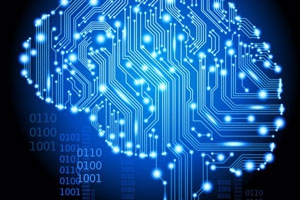Ru
|
Eng
Belarusian scientists in learning brain project
18.08.2015

TOMSK, 17 August (BelTA) – Scientists of the Tomsk State University in association with colleagues from Belarus, Bulgaria, Germany, Kazakhstan, and Ukraine have created an artificial carrier of natural intelligence — a physical model that can learn — for the sake of modelling pathologies and treating all kinds of human memory disorders, the university’s press service told BelTA.
The project is being implemented by the international lab of the university’s excellence center Intellectual Technical Systems and involves scientists from six countries.
The researchers believe that the number of applications for the artificial intelligence they have created is limitless. The artificial brain can help study and treat various kinds of amnesia, including Alzheimer’s and Parkinson’s. These pathologies are most often caused by broken neuron connections and falling neuron functions. Specialists could use the artificial brain for modelling pathologies and using the experience for selecting medications to treat the maladies. Apart from that, the artificial carrier of natural intelligence can be part of smart robot technology solutions and neurocomputers.
The university’s press service quoted Professor Vladimir Syryamkin as saying: “Initially we built the math model and the computer model of the human brain. After that we built a radio technology device based on perceptrons (artificial neural networks). It is capable of processing various kinds of information such as video and sound.”
Work is now in progress to create the main system of the robot complex that will act as an intellectual control center. In the end the artificial brain should be able to match the functionality of the biological model.
“We have a huge amount of work ahead of us but one very important step has already been made: we have managed to pull the veil from the secrets of the brain neural network. New neural connections are formed and existing connections disappear in our physical model just like it happens in the human brain. With regard to humans the process is called forgetting,” the press service quoted lead developer Vladimir Shumilov (Kiev) as saying.
The project is being implemented by the international lab of the university’s excellence center Intellectual Technical Systems and involves scientists from six countries.
The researchers believe that the number of applications for the artificial intelligence they have created is limitless. The artificial brain can help study and treat various kinds of amnesia, including Alzheimer’s and Parkinson’s. These pathologies are most often caused by broken neuron connections and falling neuron functions. Specialists could use the artificial brain for modelling pathologies and using the experience for selecting medications to treat the maladies. Apart from that, the artificial carrier of natural intelligence can be part of smart robot technology solutions and neurocomputers.
The university’s press service quoted Professor Vladimir Syryamkin as saying: “Initially we built the math model and the computer model of the human brain. After that we built a radio technology device based on perceptrons (artificial neural networks). It is capable of processing various kinds of information such as video and sound.”
Work is now in progress to create the main system of the robot complex that will act as an intellectual control center. In the end the artificial brain should be able to match the functionality of the biological model.
“We have a huge amount of work ahead of us but one very important step has already been made: we have managed to pull the veil from the secrets of the brain neural network. New neural connections are formed and existing connections disappear in our physical model just like it happens in the human brain. With regard to humans the process is called forgetting,” the press service quoted lead developer Vladimir Shumilov (Kiev) as saying.
SCIENCE. TECHNOLOGY. INNOVATIONS
13.08.2024
28.06.2024
28.06.2024
25.06.2024
05.06.2024
15.05.2024
15.05.2024
26.04.2024
26.04.2024
26.04.2024













